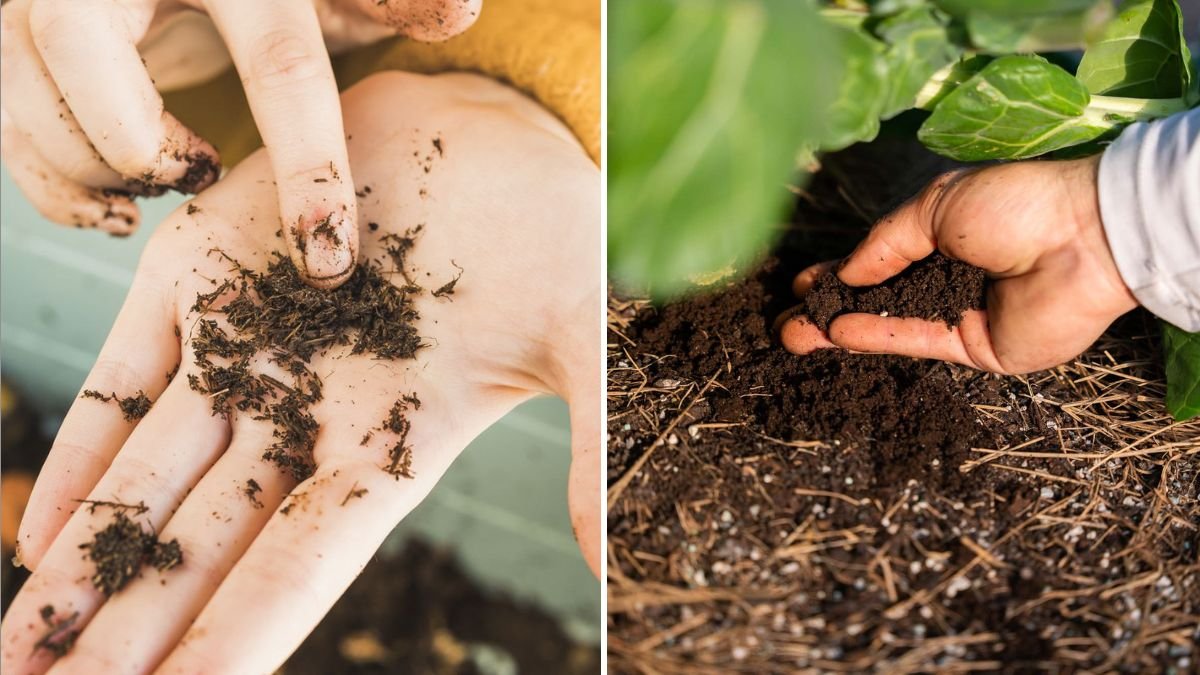Gardeners are always on the hunt for ways to enrich their soil naturally, and one of the most powerful amendments you can add doesn’t come from a store-bought chemical fertilizer. It comes from earthworms. Worm castings—also called vermicast—are a nutrient-packed, organic fertilizer created by worms as they digest organic matter. Often called “black gold” for gardeners, worm castings improve soil structure, increase microbial activity, and provide a slow-release nutrient boost that keeps plants thriving.
If you’re wondering how to use worm castings to supercharge your garden, this guide covers everything you need to know—what they are, why they work, and the best ways to apply them to different garden settings.
What Are Worm Castings?
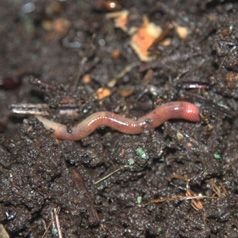
Worm castings are the natural byproduct of earthworms eating organic matter such as food scraps, leaves, and compost. As the worms process this material, they break it down into a fine, odorless, nutrient-rich substance. Think of it as highly concentrated compost, packed with nutrients like:
- Nitrogen – for leafy growth
- Phosphorus – for strong roots and flowers
- Potassium – for overall plant health and fruiting
- Calcium, magnesium, and trace minerals – for balanced nutrition
- Beneficial microbes – that improve soil fertility and plant disease resistance
Unlike synthetic fertilizers, worm castings don’t burn plant roots, and their nutrients are released slowly, making them one of the most forgiving and effective soil amendments.
Why Worm Castings Are So Beneficial
Adding worm castings improves your garden soil in multiple ways:
- Boosts Soil Fertility – They contain concentrated plant nutrients that encourage strong growth.
- Improves Soil Structure – The fine, crumbly texture helps aerate compacted soil and increases water retention.
- Encourages Microbial Life – Beneficial bacteria and fungi in castings help break down organic matter into forms plants can absorb.
- Naturally Balances pH – Worm castings tend to have a neutral pH, helping stabilize acidic or alkaline soils.
- Reduces Plant Stress – The humic acids in worm castings improve nutrient uptake, making plants more resilient against pests, diseases, and drought.
How Much Worm Castings Should You Use?
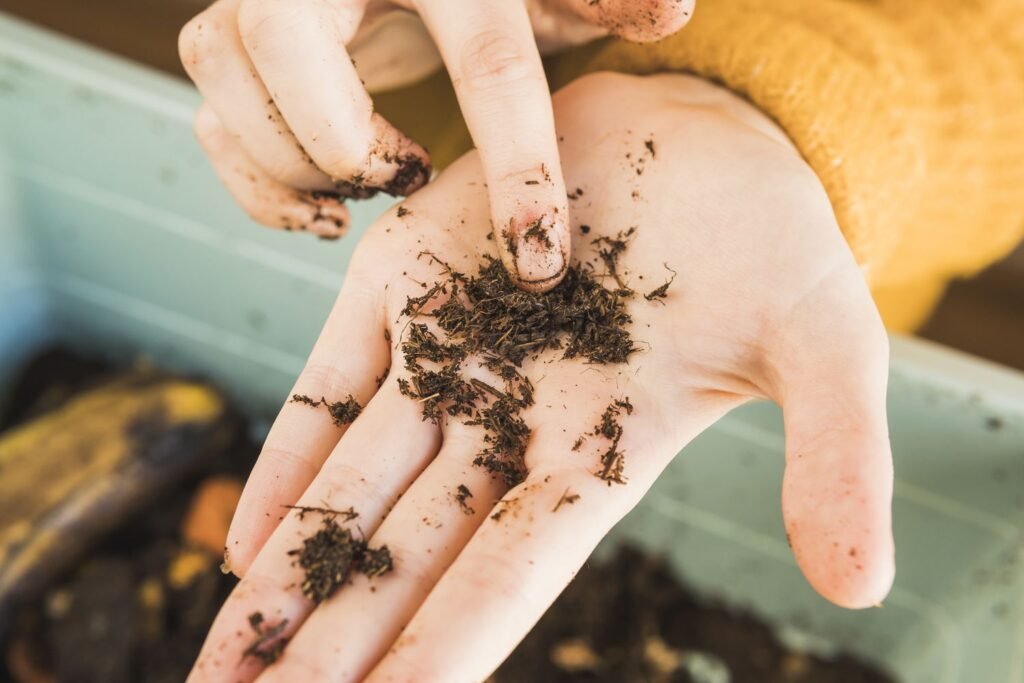
Worm castings are powerful, so you don’t need a lot. A general rule is:
- For garden beds: 10–20% of your soil mix can be worm castings.
- For containers and pots: 1 part worm castings to 3 parts potting soil.
- As a top dressing: A ½ inch layer sprinkled around the base of plants works wonders.
Because worm castings are slow-release, their effects last for months without the need for frequent reapplication.
Methods of Adding Worm Castings to Soil
There are several effective ways to incorporate worm castings into your garden:
1. Mixing into Soil Before Planting
The best time to add worm castings is at the start of the season. Mix them directly into your garden beds or containers.
- Till or dig worm castings into the top 6–8 inches of soil.
- This ensures nutrients and microbes are evenly distributed where roots will grow.
- Perfect for vegetable gardens, flower beds, and raised beds.
2. Top Dressing Around Established Plants
If your plants are already growing, simply sprinkle a thin layer of worm castings around the base of each plant.
- Lightly work it into the soil surface and water well.
- Works great for perennials, roses, shrubs, and potted plants.
- Provides a steady nutrient supply during the growing season.
3. Worm Casting Tea
Worm casting tea is a liquid fertilizer that delivers nutrients directly to roots and leaves.
- Place 1 cup of worm castings in a porous bag or cloth.
- Soak in 1 gallon of water for 24–48 hours, stirring occasionally.
- Water plants with the liquid, or use it as a foliar spray for quick absorption.
This method boosts plant health, increases disease resistance, and is especially helpful for seedlings or stressed plants.
4. Seed Starting Mix
Worm castings are gentle and nutrient-rich, making them ideal for seed starting.
- Mix 1 part worm castings with 3 parts seed-starting soil.
- This supports germination and encourages strong root development.
5. Compost Accelerator
Add worm castings to your compost pile to speed decomposition and boost microbial activity. They act as a natural “starter” to improve the quality of finished compost.
Best Plants for Worm Castings
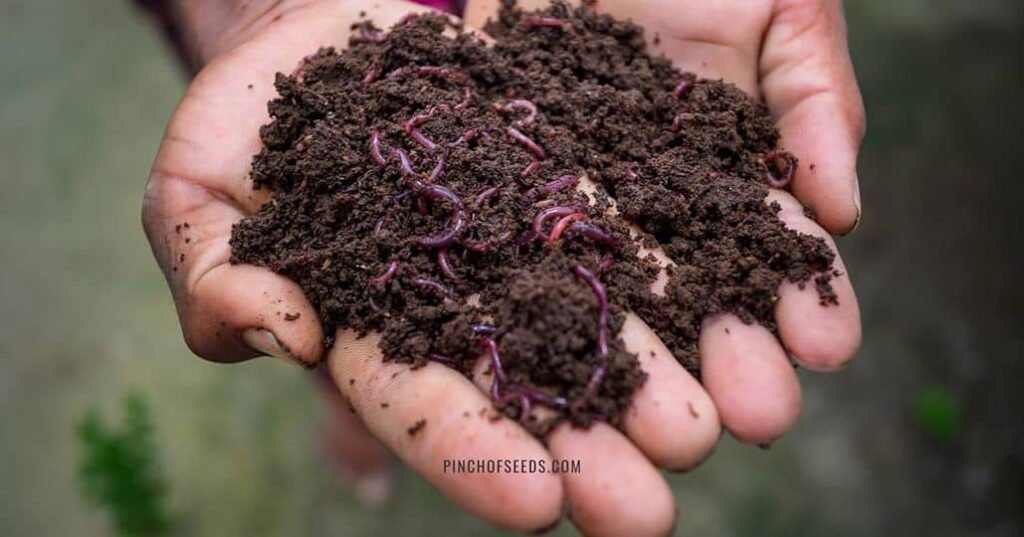
While all plants benefit from worm castings, some especially love the extra boost:
- Vegetables: Tomatoes, peppers, cucumbers, leafy greens, and root crops.
- Flowers: Roses, petunias, marigolds, and perennials.
- Fruit trees and shrubs: Blueberries, strawberries, citrus trees.
- Houseplants: Ficus, philodendrons, succulents, and herbs in pots.
Common Mistakes to Avoid
Even though worm castings are simple to use, keep these points in mind:
- Don’t overapply: While they won’t harm plants, excessive castings can make soil too dense.
- Avoid drying them out: Store in a cool, dark place with some moisture to keep microbes alive.
- Don’t mix with chemical fertilizers: Synthetic chemicals can kill beneficial microbes in castings.
How to Make Your Own Worm Castings
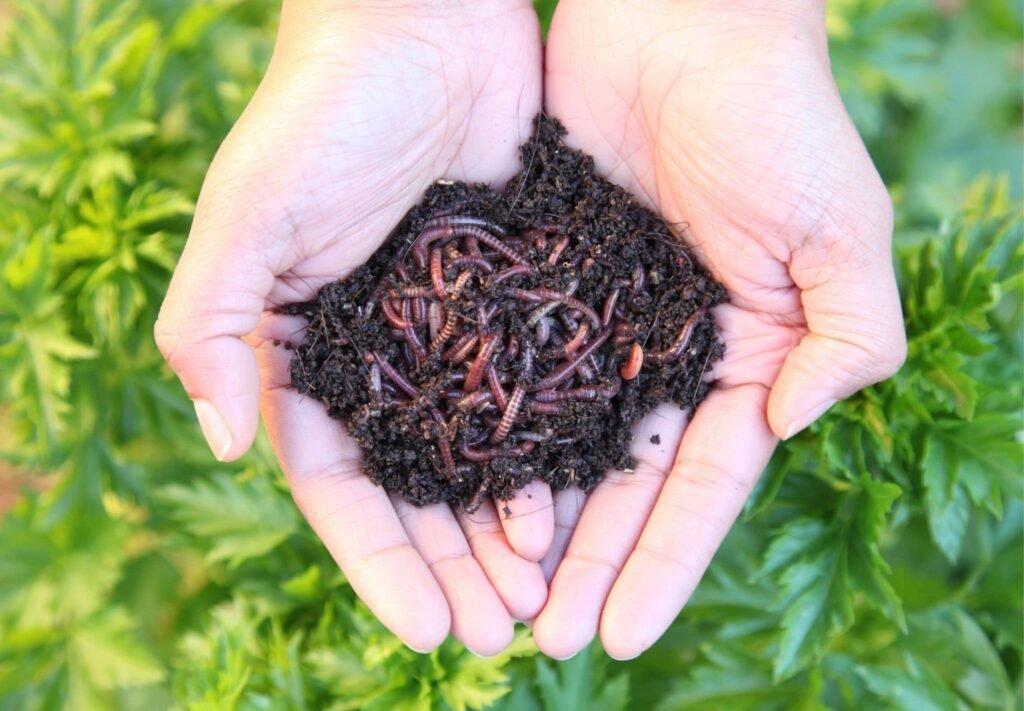
If you want a free, continuous supply, consider starting a worm bin (vermicomposting system).
- Use a container with air holes and bedding (shredded paper, cardboard, or leaves).
- Add red wigglers (compost worms) and feed them food scraps like fruit peels, vegetable waste, and coffee grounds.
- Over weeks, the worms turn this material into nutrient-rich castings.
Not only do you reduce food waste, but you also create a sustainable source of fertilizer right at home.
Final Thoughts
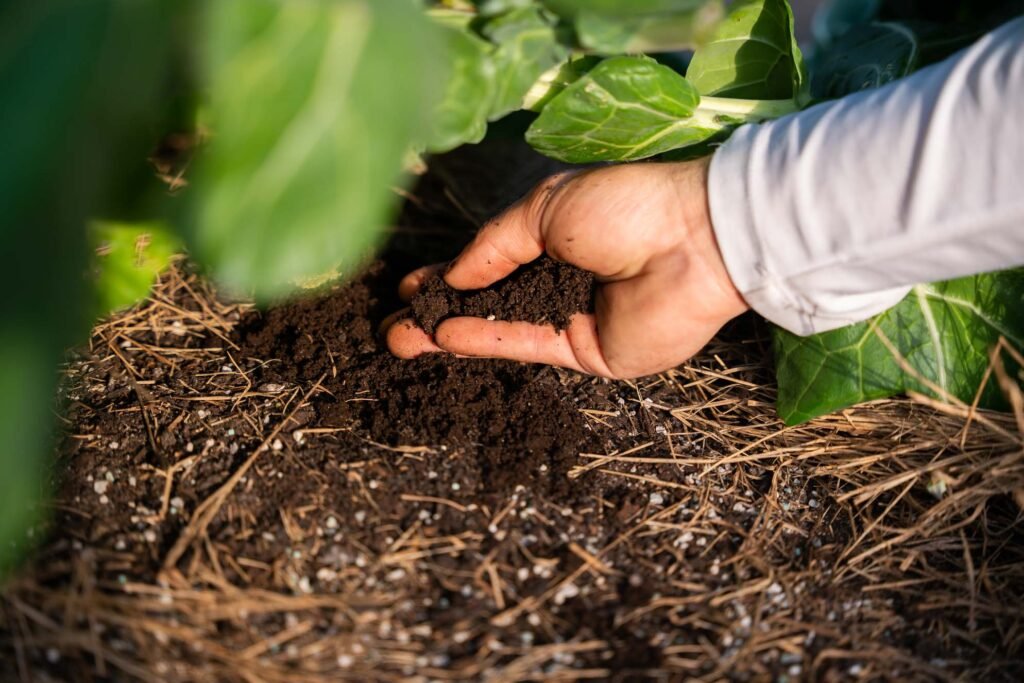
Worm castings are one of the most powerful, natural ways to boost your garden soil. Packed with nutrients, beneficial microbes, and soil-conditioning properties, they transform average soil into a thriving ecosystem that supports healthy, productive plants.
Whether you mix them into beds before planting, top-dress established plants, brew a nutrient-rich tea, or start your own worm bin, worm castings are a gardener’s best friend. Affordable, safe, and effective, they prove that sometimes the simplest solutions are the most powerful.
Adding worm castings isn’t just about feeding plants—it’s about building healthier soil for long-term success. Once you start, you’ll wonder how you ever gardened without them.
